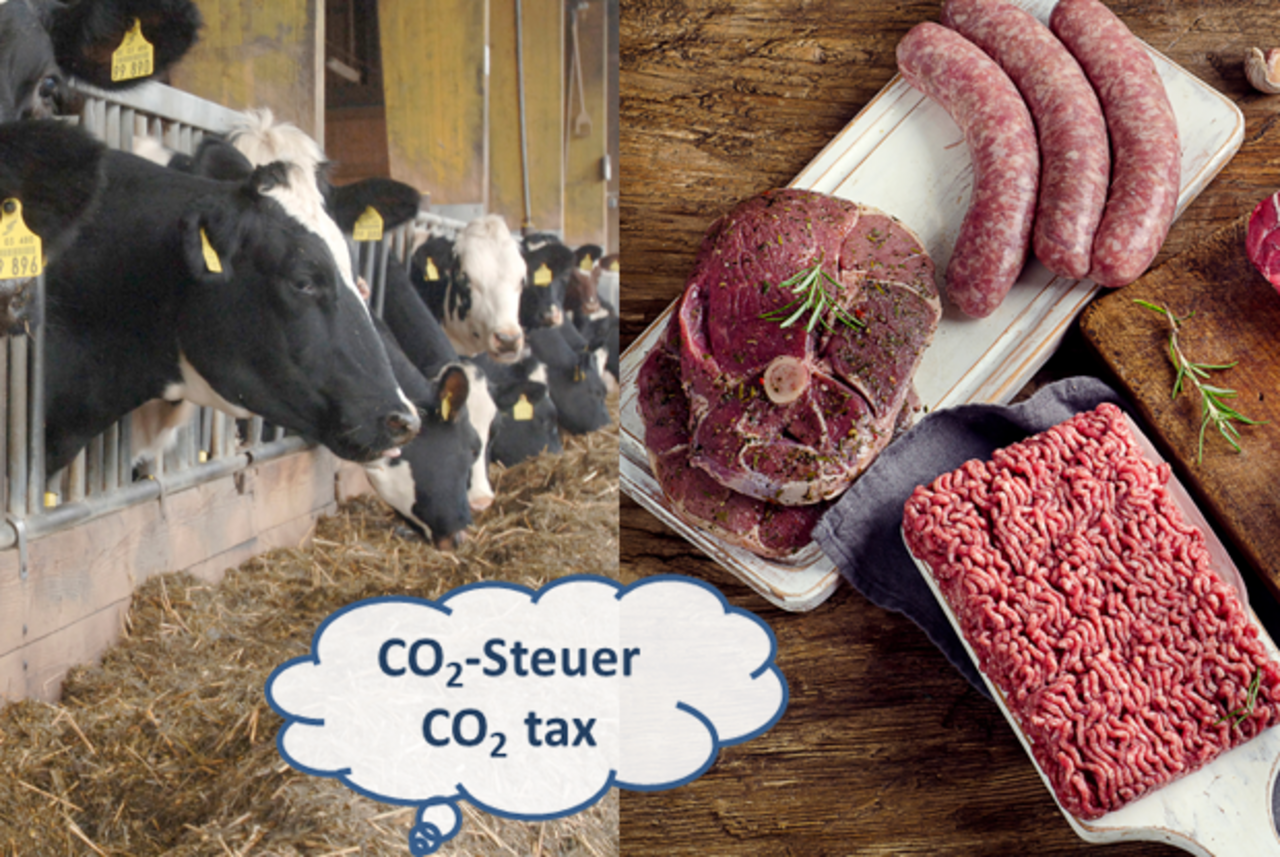Project
CO2-tax on GHG emissions related to agriculture

Introduction of CO2-tax on greenhouse gas emissions related to agriculture could reduce them. What impacts would such policy measure have? Is a tax on producer’s or on consumer’s side to prefer?
Background and Objective
The Federal Government of Germany has set ambitious greenhouse gas (GHG) emissions reduction goals. From the scientific point of view, the carbon (or CO2-eq.) pricing is the most favored measure to reduce GHG emissions. Such pricing would have the best effect if it would be introduced worldwide and for all kinds of GHG emissions. The EU Emission Trading Scheme (ETS) is the key pillar of the European climate policy. Its intention is a price setting on GHG emissions within the energy and industry sectors. However, more than half of the GHG emissions come from sectors which are not covered by the EU ETS, including emissions from agriculture.
The aim of this study is to quantify the effects of the introduction of CO2-tax on greenhouse gas emissions related to agriculture.
Approach
The study starts with an overview of the GHG emissions which occur as a result of agricultural production. In doing so, we will show that the total amount of GHG emissions related to agriculture as well as their regional distribution vary depending on the accounting method applied. After disclosing the main sources of GHG emissions related to agriculture, we focus on policy initiatives for the reduction of GHG emissions, already implemented or planned. The first two working steps form the basis for the conception of the model scenarios which have to be analyzed.
Data and Methods
For simulation calculations the general equilibrium model MAGNET (Modular Applied GeNeral Equilibrium Tool) is used.
Our Research Questions
- Which impact would the implementation of a CO2-tax on GHG emissions related to agriculture in the EU or Germany have?
- To what extent could GHG emissions related to agriculture be reduced, nationally and globally, by the introduction of a CO2 tax in the EU or in Germany?
- Which trade effects will be expected?
- Which kind of intervention – on the producer or the consumer side - should be preferred?
Results
The results of the project are published in the series of the Landwirtschaftliche Rentenbank, available at:
Vortrag_Sturm_Banse_2019_CO2_Steuer
Links and Downloads
Thünen-Contact

Involved Thünen-Partners
Duration
3.2018 - 1.2019
Publications
- 0
Banse M, Sturm V (2019) Preissetzung auf agrarrelevante THG-Emissionen auf der Produktions- vs. Konsumseite: Was bringt mehr? SchrR Rentenbank 35:7-41
- 1
Banse M, Sturm V (2019) Preissetzung für agrarrelevante THG-Emissionen. Agra Europe (Bonn) 60(28):D1-16

![[Translate to English:] [Translate to English:]](/media/_processed_/3/e/csm_AdobeStock_249730128_92f14d3a63.jpeg)
![[Translate to English:] [Translate to English:]](/media/_processed_/3/e/csm_AdobeStock_249730128_a6fcf4c893.jpeg)




